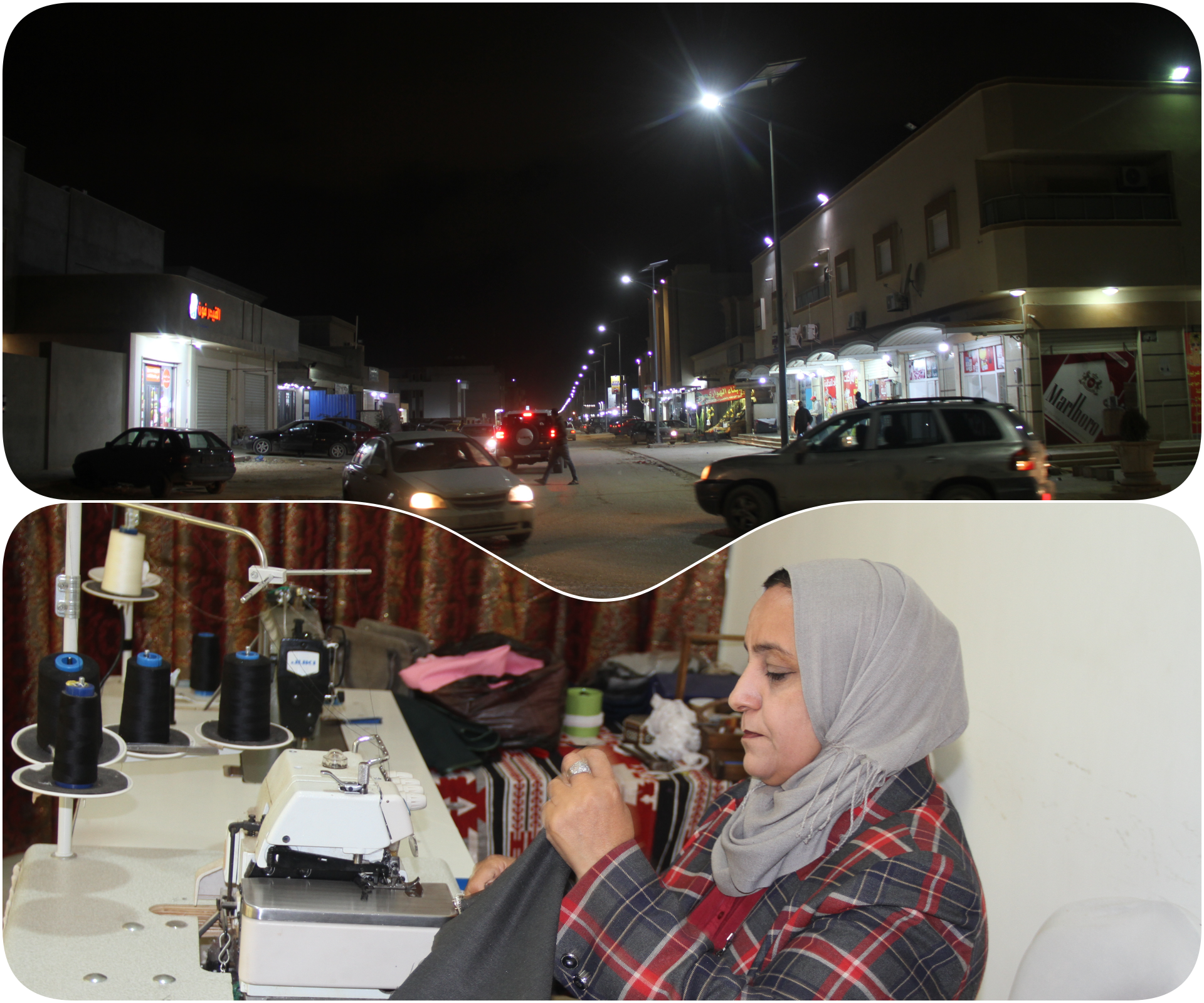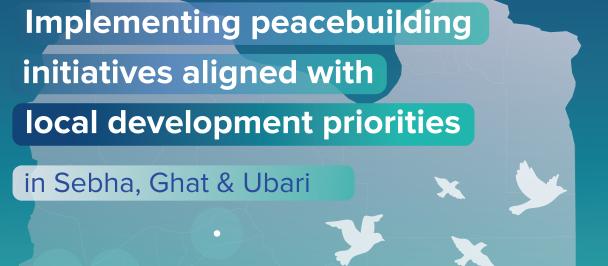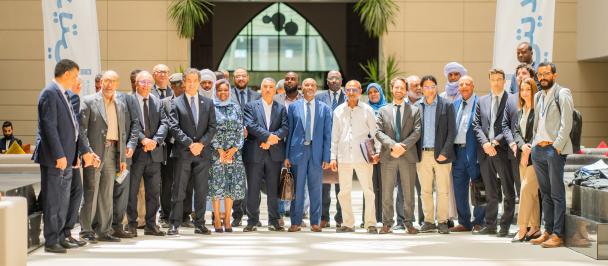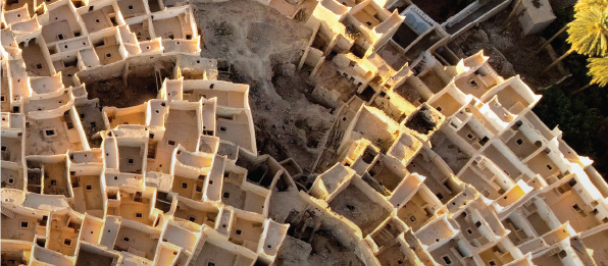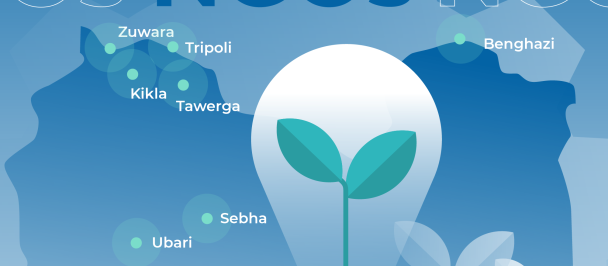Ms. Aziza El Sahely decorates a dress in her shop in Benghazi. Photo: ©UNDP Libya/Abdeladeem Ajaj
''My shop was previously located in the Al Masaken district in Benghazi. In the evening, the place was dark, and I could not stay longer. My clients, who are largely women and girls, could neither come after sunset, and my income was not significant,'' stated Ms. Aziza El Sahely, a 45-year-old fashion designer and mother of five children.
Years of conflict caused major damage to infrastructure in the city of Benghazi. Essential basic services, including healthcare, education, and the supply of electricity, among others, were interrupted. With peace and stabilization efforts in place, residents began to reopen their businesses. However, those operating in the streets with no streetlights found it hard to grow their businesses as they had to close at sunset.
''I was worried about this situation as I had to pay rent and fulfill some other obligations at home. My business was not growing,'' Aziza added.
''Most customers I deal with are women. After sunset, when the streets were dark, I only had a few customers. They felt insecure,” said Mr. Akram Al-Moghrabi, a resident of the Qatar neighborhood and owner of a flower-dressing and gift-wrapping shop.
Mr. Akram Al-Moghrabi prepares flowers in his shop in Benghazi. Photo: ©UNDP Libya/Abdeladeem Ajaj
Led by national and municipal institutions and implemented by the United Nations Development Programme (UNDP) with support from 13 international partners and the Government of Libya, the Stabilization Facility for Libya (SFL) provides rapid response in rehabilitation of critical infrastructure and delivery of essential equipment to municipalities to help improve basic services. An uninterrupted and cost-effective supply of electricity is key for local authorities to ensure security, create opportunities for residents to run their businesses, and boost local economy.
More profitable opportunities for small businesses
A previously dark street in Benghazi. Photo: ©UNDP Libya/Abdeladeem Ajaj
To address the issue, SFL installed a total of 24 kilometers of solar streetlights along main streets of the city which used to be dark. Some business owners, however, were reluctant at having the lights installed in front of their businesses.
''We faced certain challenges at the beginning of the project. Some shop owners were against excavation work and installation of those poles in front of their shops as this was affecting the aesthetics of their businesses,'' comments Mr. Imran Hariri, a civic activist in Benghazi. ''Residents living in the area set up a committee which engaged with everyone and ensured that permission was granted to install the poles. Today, we are witnessing more transactions as shops can operate until late at night. The value of real estate has increased in these areas, too,'' he added.
Mr. Osama Al-Kazah, Director of the Projects Office for Benghazi Municipality, stated: ''The solar streetlight project is a great investment that is contributing to enhancing stability in the city and the whole country. The existing public lighting system was insufficient to cover all corners of the city. Solar energy is really a way to address a lack of public streetlights and associated challenges.''
Mr. Badr Ali attends to a customer at his barbershop in Benghazi. Photo: ©UNDP Libya/Abdeladeem Ajaj
''The situation is now different to what it used to be. The street is now lit up at night, even when there is a power cut in the neighborhood,'' says Mr. Badri Ali, an owner of a barbershop located on one of the streets that benefited from the solar streetlights. Owning a business on this street is now very profitable, and I would encourage young people to start businesses here,'' he added.
''I can now stay in my shop until ten in the evening without fearing about security. This solar powered lighting system is making a significant contribution to the success of my business as more customers are showing up. I have earned many certificates in my area of work, and I am about to share this knowledge with other female fashion designers to help them become self-reliant,'' Aziza concluded.
Top: One of the streets in Benghazi which has benefited from the SFL solar streetlights project.
Bottom: Ms. Aziza El Sahely works on new fashion models in her studio in Benghazi. Photos: ©UNDP Libya/Abdeladeem Ajaj

 Locations
Locations